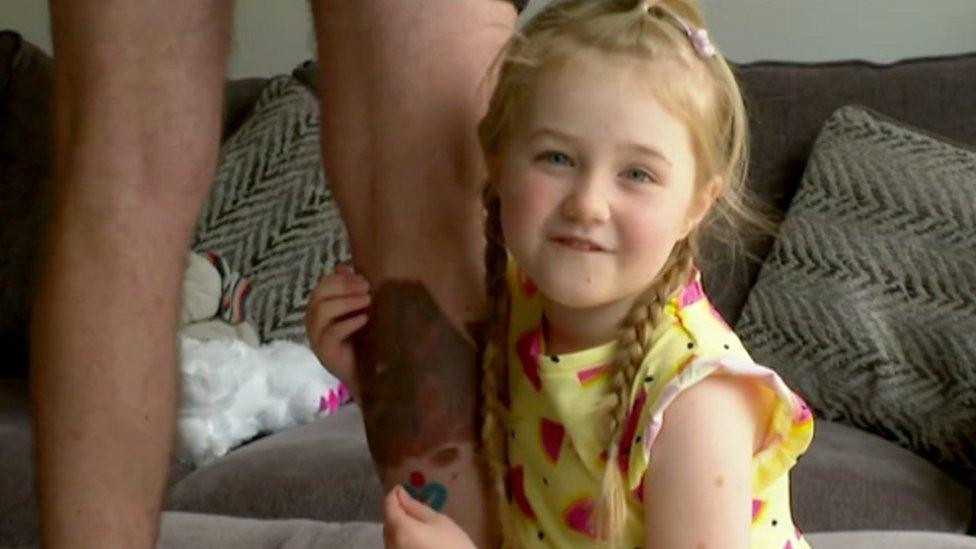Tattoo artist Jessie Knight celebrated at Amgueddfa Cymru - Museum Wales
- Published
Jessie Knight ran her own tattoo studio in Barry from the age of 18 to become the UK's first woman tattooist
Jessie Knight may not be a name familiar to many, but she holds a unique place in the history of tattooing.
In the early 20th Century the trail-blazing Welsh woman disrupted the male-dominated artform, becoming the UK's first professional female tattoo artist.
Now her legacy is being preserved by Amgueddfa Cymru - Museum Wales.
When she first picked up a tattoo machine more than 100 years ago, Jessie Knight had no idea she would be a catalyst for change within the industry.
But a few years later she was running her own studio in the port of Barry, Vale of Glamorgan, from the age of 18.
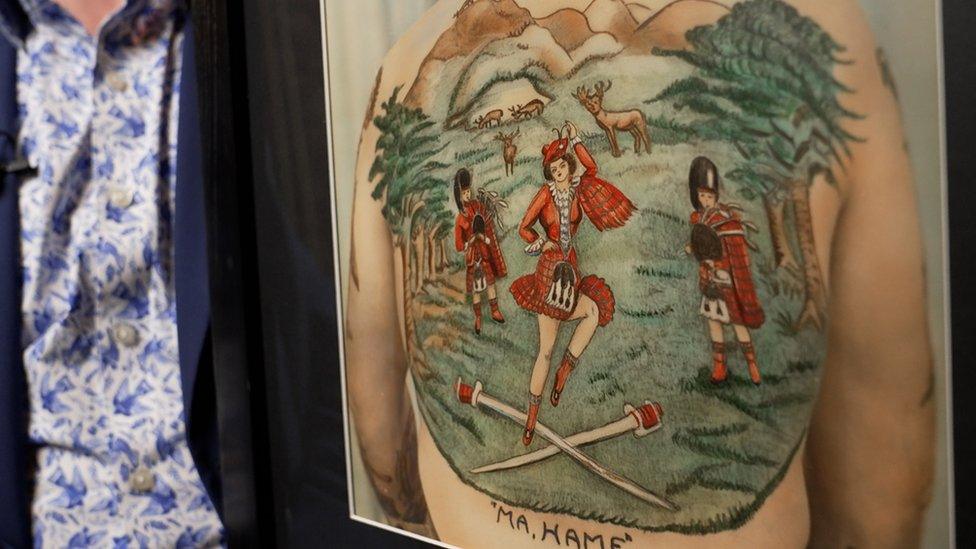
Jessie Knight was taught how to tattoo by her father
Trained by her dad, Jessie, who was born in 1904 and died in 1992, took over the family shop when he went off to sea as a sailor.
For the next three decades she would travel the UK inking the skin of thousands of customers and blazing her own trail in an industry almost entirely dominated by men.
Now, her collection of designs and tattoo machines have been taken on by Amgueddfa Cymru - Museum Wales.
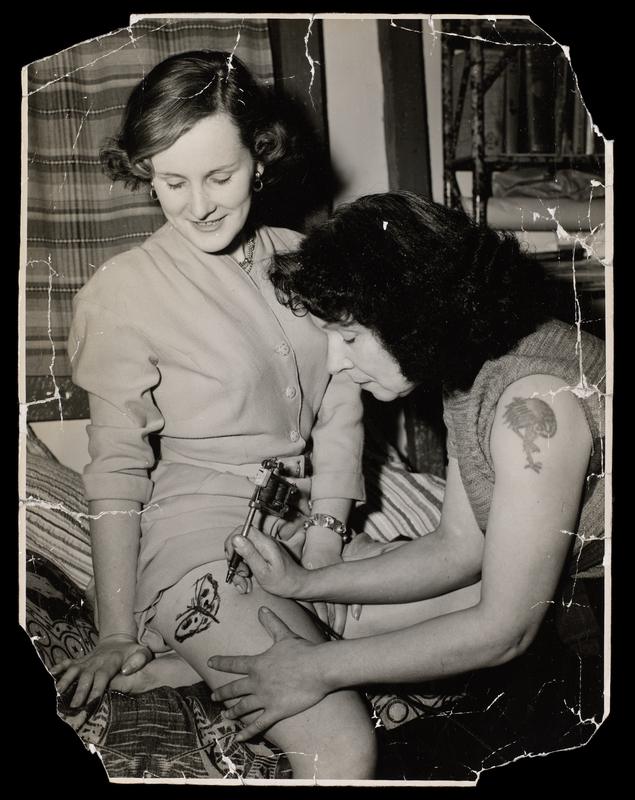
From the age of 18, Jessie Knight ran her own tattoo studio in Barry
Her great nephew Neil Hopkin-Thomas said: ''Aunt Jessie was quite an eccentric character.
''She was forward-thinking, way ahead of her time but also just a lot of fun to be around with lots of stories and tales to tell.
''Before tattooing she was a horseback stunt woman and a sharpshooter.
''She was very colourful and lived a really exciting life.''
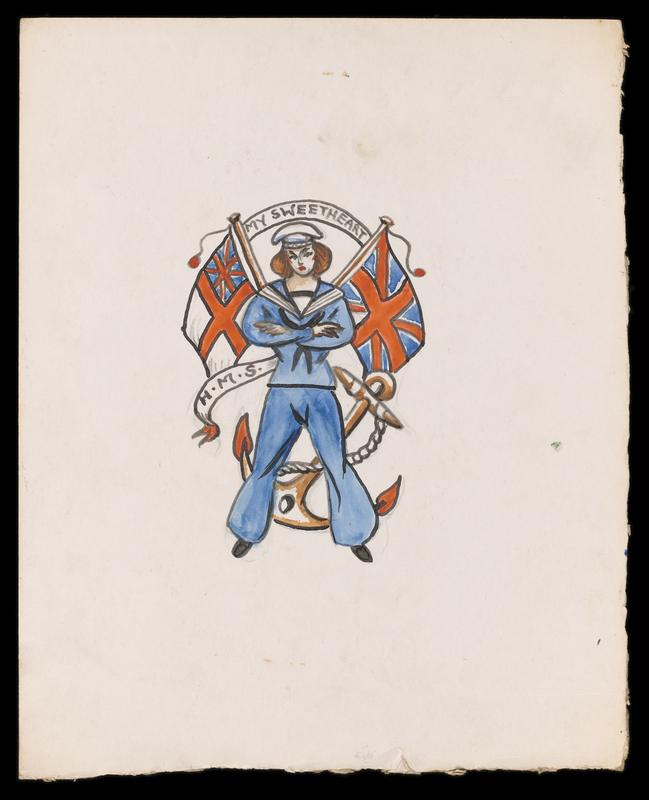
One of Jessie's designs
Jessie gained respect for her work across the world. In 1955 she came second place in the Champion Tattoo Artist of All England competition.
But despite her successes she was often challenged by the perception of women at the time.
Mr Hopkin-Thomas said: ''Several times the shop was broken into and some designs taken.
''She had this big trunk with all her designs in and whilst tattooing she would be firmly sat on it so no one could get to them.
''It was a man's world at that time but just because she was female she thought why shouldn't she be able to do the job she loved.''
It was not only the skin of others that she inked during her illustrious career.
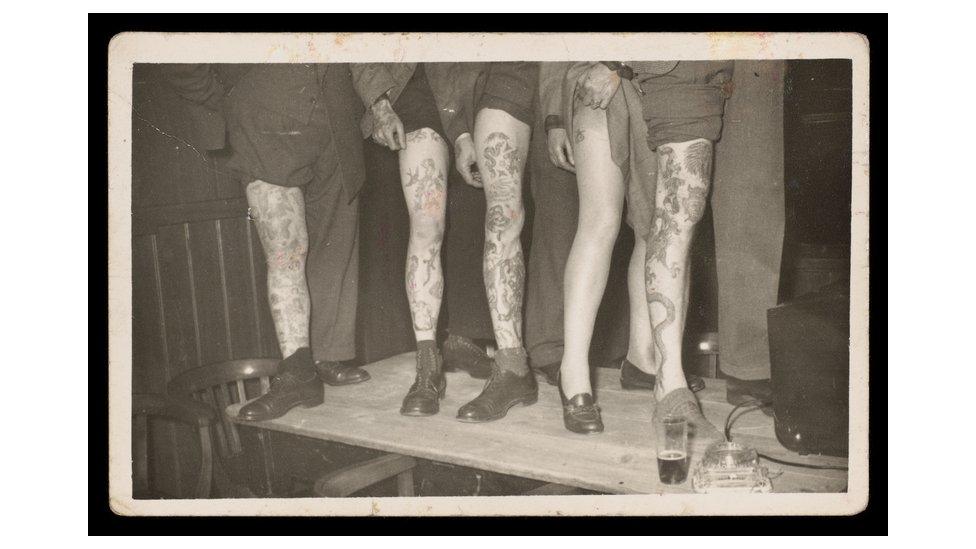
Jessie Knight first picked up a tattoo machine 100 years ago, going on to have an illustrious career
Mr Hopkin-Thomas said: ''On her hands were little dots of colour where she used to test the ink out before she would tattoo somebody. A testing palate almost.''
''She also had the family Coat of Arms on her back, which her father did, as well as a spider's web and a cross.''
Tattoo historian Dr Matt Lodder describes Jessie as a "historic figure".
''Jessie really made her name on her own and was able to kind of forge out a particular kind of tough femininity within a very male-dominated industry,'' said Dr Lodder.
Many of her bases across the UK were in sea port towns such as Chatham in Kent, Aldershot in Hampshire and also Portsmouth.
''She would've mainly been tattooing sailors who were coming through,'' he said.
''There would have been lots of drunkenness and misbehaviour.
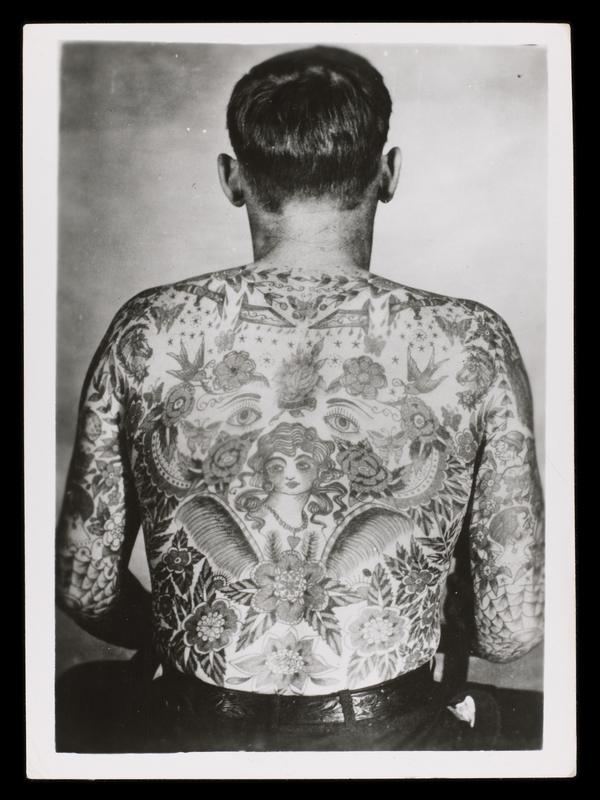
One of Jessie's designs
''She was working in a world where she had to be careful but at the same time she did this with a bit of panache and a bit of flair.''
Jessie hung signs in her shops that warned customers against any unruliness.
In one she noted: 'If you've had one over the eight… you are too late.'
''From the material we have of her life we can see she was a tough woman, with a real sense of humour and a twinkle in her eye," said Dr Lodder.
For years, Mr Hopkin-Thomas had kept her collection of nearly 1,000 pieces including her tattoo designs, family photographs and even the tattoo machines she used throughout her career.
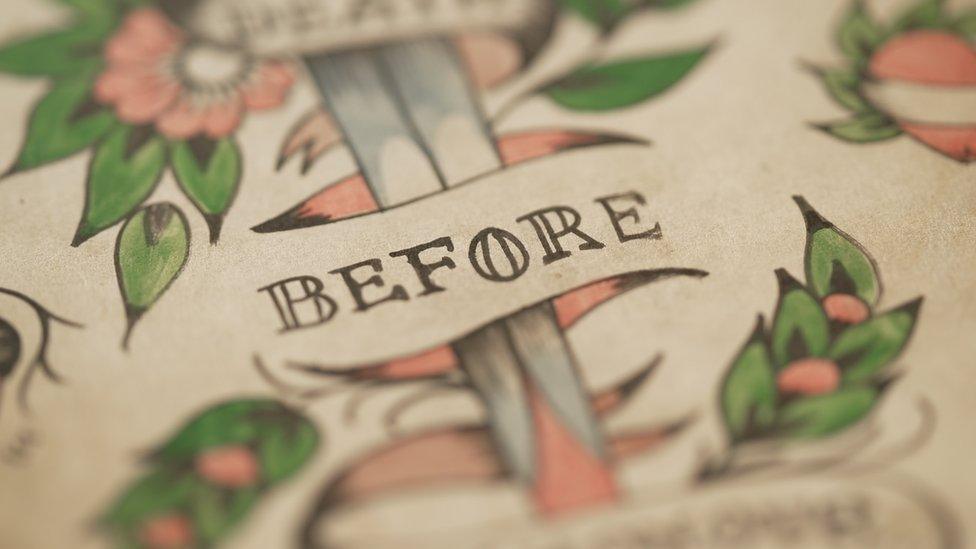
One tattoo artists says Jessie Knight "cemented the way for female tattoo artists to be more accepted"
Dr Lodder said: ''It's almost like she finished tattooing one day, put everything into bags and that's it.
''All of it is there and it tells us her story."
He also believes that the collection gives an insight into life beyond the story of Jessie Knight.
''Tattooing is a way of learning about people whose lives aren't usually represented in museums," he said.
''Through this extraordinary woman and her work we see this changing time.
''A country that's going through a collapse of empire, a change of status for women, two major world wars and lots of social change.
''All of the things that people feel sufficiently excited and passionate about to record on their bodies, it's all there in these designs.''
Fflur Morse, the senior curator overseeing the collection for Amgueddfa Cymru - Museum Wales, said: "It's really important to preserve the stories of women like Jessie Knight who left their mark on Wales and also made a huge impact in her field in a world that was dominated by men."
Nowadays, things look very different for women in the industry.
Tattoo artist Lisa Turner owns Inkabella, an all-female studio in Barry.
She said: ''I feel like Jessie Knight's work definitely cemented the way for female tattoo artists to be more accepted in the future.
''I think there is probably more female tattooists in Barry now than there are male. That's massive compared to how it used to be, even when I first started.
''If it weren't for people like Jessie Knight, I don't know where we'd be.''
You can see more on this story on Wales Live on iPlayer.

ACID DREAM: The Great LSD Plot
SAM SMITH PRESENTS STORIES OF HIV: From Terrence Higgins to today

- Published28 February 2023
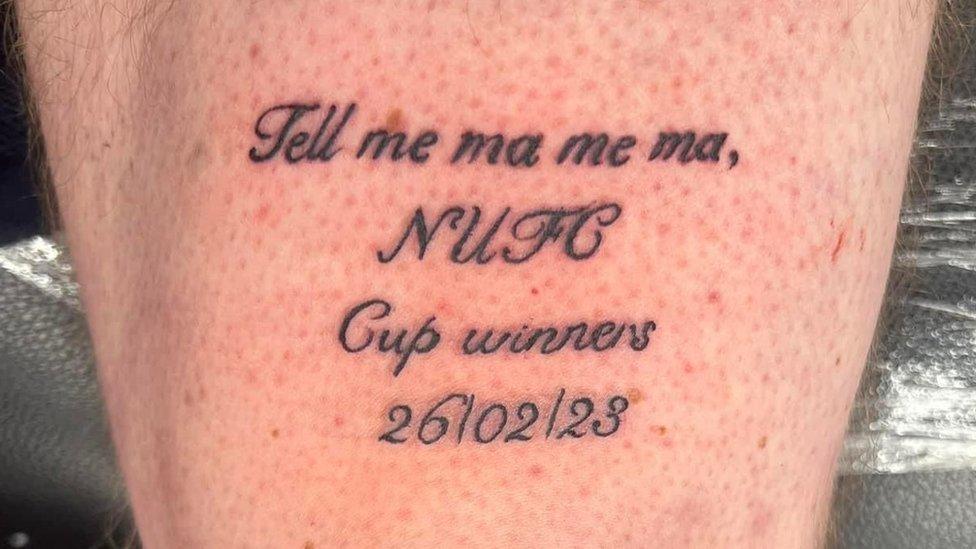
- Published16 December 2022
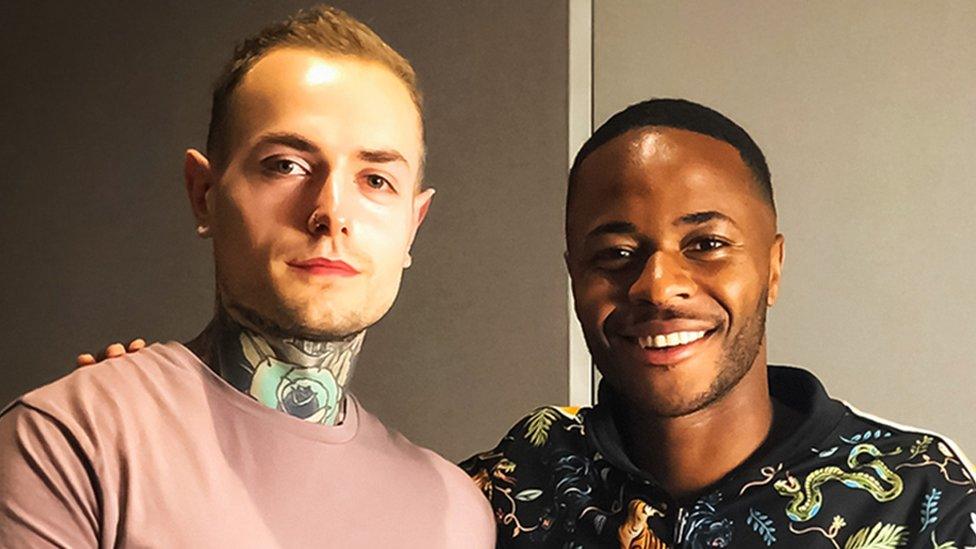
- Published4 May 2022
